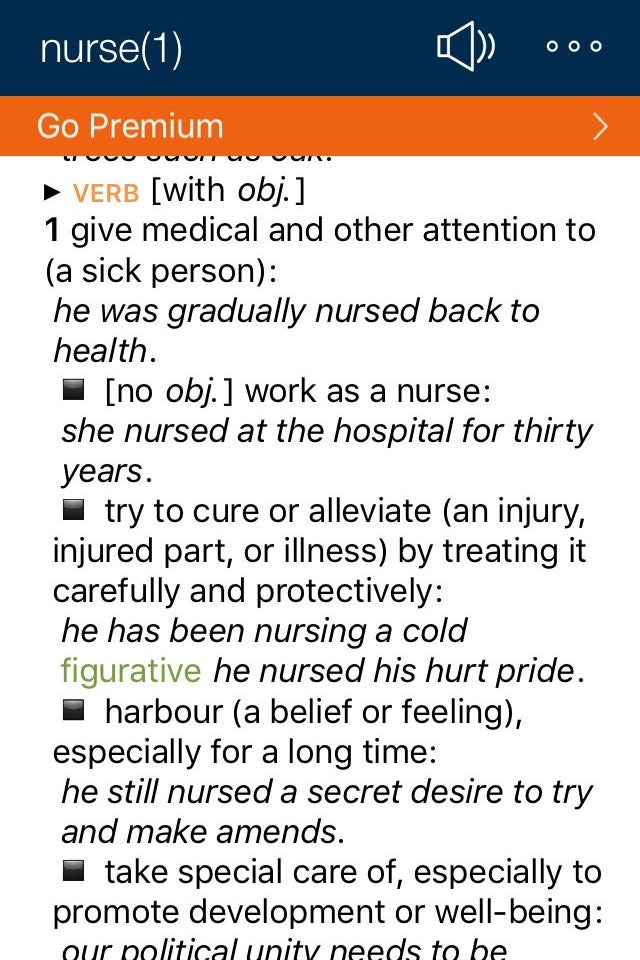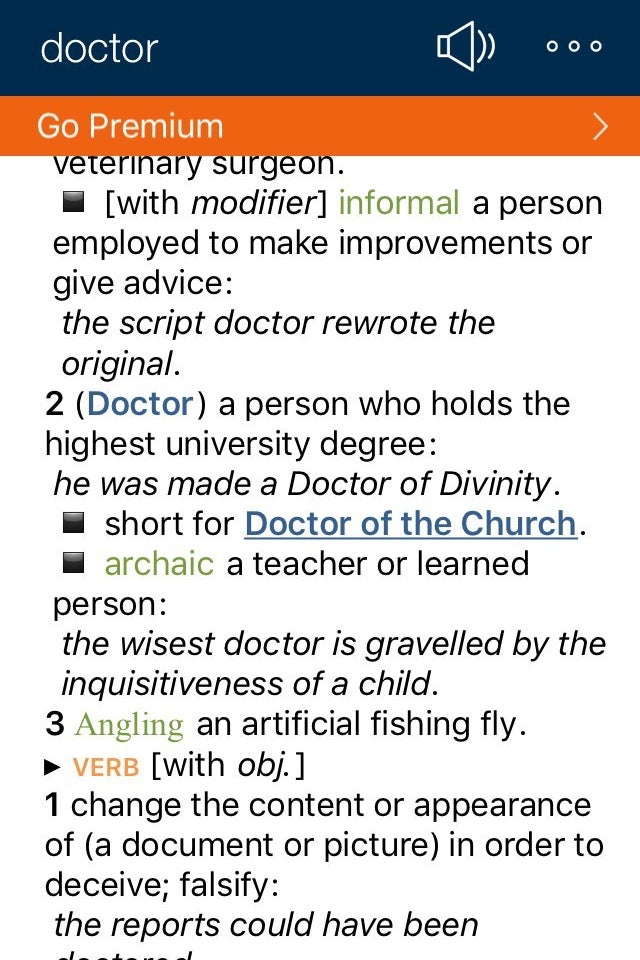Earlier this week, Michael Oman-Reagan, an anthropologist at Canada's Memorial University of Newfoundland noticed something a little untoward in the Oxford Dictionary of English.
Hey @OxfordWords, why is “rabid feminist” the usage example of “rabid” in your dictionary - maybe change that?
Under the entry for the word "rabid" the example offered for the word's usage was "rabid feminist".
"I was preparing to post a few tweets about how lately I've noticed people getting so attached to their political candidates they aren't thinking about platforms or policy any more and the first word that came to my mind for the zealous, unthinking support of a candidate regardless of their policy, like a sports team, was 'rabid'," Oman-Reagan told BuzzFeed News.
"So before I tweeted it, I looked it up to check my instinct about the really negative sense of the word, and then I saw 'rabid feminist'," he said.
"I thought that was so outdated and strange, like something you might have said 30 years ago, so I shared it."
Oman-Reagan also shared definitions of a few other words where he found that Oxford have questionable examples of their usage.
The word "shrill" for example, was used to describe "shrill women's voices".
The word “shrill” also has a sexist usage example in @OxfordWords Dictionary. @tim_cook (h/t @SFyimby_)
A female-specific definition of the word "psyche" was felt to have negative connotations.
And the usage example for “psyche” is also sexist. @OxfordWords @tim_cook (h/t @SFyimby_)
"Nagging" meanwhile was explained with the phrase "nagging wife".
Reinforcing stereotype of “a nagging wife” doesn’t merely reflect use, it actively reproduces sexism. @OxfordWords
The definition of "housework" was given a conspicuously female example.
"Rabid feminists” can’t get a PhD but they still get to do all “housework” in @OxfordWords dictionary. @tim_cook
When BuzzFeed looked up the words "nurse" and "doctor", we found similarly gendered definitions.


Examples of usage for the word nurse included, "He was gradually nursed back to health," and "she nursed at the hospital for thirty years" (our emphasis).
Under the definition of "doctor" only a male pronoun was used as an example.
While Oxford University Press (OUP), which publishes the dictionary, could not be reached for comment on Saturday, the official Twitter account for the dictionary did have something to say...
If only there were a word to describe how strongly you felt about feminism… https://t.co/mAsmjUBoOs
"Well there are - many," Oman-Reagan told us in response to Oxford appearing to suggest that "rabid" might be the only word to describe strong feelings about feminism.
In a comment to Oman-Reagan, Tyler Morrison pointed out that there are indeed several less loaded words that could prefix "feminism" to denote strong feelings.
"Passionate? Heartfelt? Fervid?," Morrison wrote. "Your synonym game is weak, Oxford."
So @OxfordWords, can we buy you a thesaurus? 😊
The @OxfordWords account added that "rabid" needn't be seen as a "negative adjective" when used to describe feminism.
@KatrinaLatham Our point is that 'rabid' isn't necessarily a negative adjective, and that example sentence needn't be negative either.
Several people tweeted abuse at Oman-Reagan over the idea that the dictionary could be sexist.
Those trolling & trying to stop this discussion are almost all GamerGate, anti-religion, anti-BLM, & anti-feminism.
But in a Reddit thread discussing this negative reaction to many people's distaste at the dictionary's "real world" word definitions, one user pointed out that: "If the dictionary can be updated to include new and modern words, then it can be updated to include the modern usage of old words too.
"The [dictionary] is literally rewritten on a regular basis to include new words or new meanings of old words, and even to remove words."
Linguist Sarah Shulist noted that these loaded examples in a seemingly neutral context could indeed be problematic.
@AriSchulman @OmanReagan no. The premise is that dictionaries' use of loaded language disguised as neutral is problematic.
Oman-Reagan told us he'd like to see OUP "make a clear statement denouncing some of the misogynistic abuse people are getting simply for having this conversation".
"They're in a position to come out strongly against that," he added.
"They should listen to the questions people are asking them about these example sentences.
"The people I've heard from on Twitter are saying they'd like to know more about how the editorial decisions are made to choose one example over another.
"Obviously when they include 'rabid feminism' they are actually choosing that example sentence from possible sentences, so why that one? Why are they choosing particular sentences which reenforce sexist stereotypes?
"Speaking to more anthropologists and socio-cultural linguists about these issues would one way for Oxford to start addressing the questions people are bringing up."
Oxford University Press could not be reached for comment at the time of writing.
You can read a full Storify of the "rabid feminist" dictionary debate here.
UPDATE Oxford Dictionaries has apologised for its "flippant" tweets in response to the suggestion that their examples were misogynist.
The @OxfordWords account said that Oxford Dictionary of English would consider revising its example of the usage of "rabid".
1/4 We were flippant in some of our tweets yesterday. Sorry.
2/4 'rabid fan' now has the highest frequency in the Oxford Corpus & 'rabid supporter' also frequent.
3/4 We'll review the primary example sentence used for 'rabid'.
4/4 You can find out more about where our example sentences come from here: https://t.co/KotzmcYiaU
Oman-Reagan welcomed the apology.
Thank you @OxfordWords for addressing our concerns about use examples in your dictionary. #LanguageMatters
